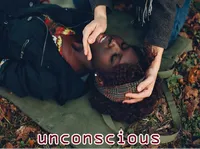
English vocabulary and phrases on Mid-Autumn Festival
unconscious means . Learn how to pronounce and use unconscious through vivid examples and easy-to-understand exercises.

Okay, let's break down how to pronounce "unconscious." It can be tricky! Here’s a breakdown with audio resources and tips:
Putting it together: uhn-kon-sigh-us
Would you like me to:
Let's break down how to use the word "unconscious" in English. It's a word with specific meanings and contexts. Here's a comprehensive guide:
Key Points & Nuances:
How to Choose the Right Usage:
Literal vs. Figurative: Is the person actually not awake, or are you describing a lack of awareness in a more metaphorical sense?
Context: What is the surrounding text about? A medical report? A psychological analysis? A general news story?
Audience: Consider who you're writing or speaking to. Be more precise with medical terms if your audience is familiar with them.
Resources for Further Learning:
To help me tailor my explanation even further, could you tell me:
Choose all options that correctly complete or fit the sentence.
The therapist suggested that many of his client's persistent anxieties stemmed from deep-seated _____________ fears. A. conscious B. latent C. unconscious D. apparent E. hidden
Despite having no explicit training, a strong _____________ urge to protect her children guided her actions. A. conscious B. instinctive C. thoughtful D. deliberate E. intuitive
Following the sudden collapse, the victim was found to be _____________ and unresponsive to any external stimuli. A. alert B. comatose C. unconscious D. senseless E. awake
Our brain often makes _____________ decisions based on accumulated experiences, without us being fully aware of the precise mental process involved. A. deliberate B. calculated C. automatic D. unconscious E. conscious
The new intern was largely _____________ to the subtle power dynamics within the team, which sometimes led to miscommunications. A. ignorant B. aware C. knowledgeable D. informed E. oblivious
Rewrite each sentence according to the instructions, ensuring grammatical correctness and a suitable style.
Original: His deepest thoughts and feelings, which he wasn't aware of, often influenced his choices. Rewrite using "unconscious" (adjective form):
Original: The doctor noted that the patient was not responsive to stimuli after the severe head injury. Rewrite using "unconscious" (adjective or noun form):
Original: She wasn't paying attention to the critical details of the contract, which led to significant problems later. Rewrite using a suitable replacement word (do NOT use "unconscious"):
Exercise 1: Fill in the blanks
Exercise 2: Choose the correct answer
Exercise 3: Rewrite the sentences

English vocabulary and phrases on Mid-Autumn Festival

Tips to improve vocabulary in communication

English vocabulary by topic: Clothes

The secret to remembering all 50 English vocabulary words every day easily

English vocabulary by topic: Human body

Vocabulary of the most popular subjects in English

Learn English about Covid: All about vocabulary and disease prevention

Vocabulary of Subjects in English

Set of 60 English vocabulary on educational topics

Vocabulary - just a small thing!
Comment ()